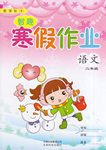
Most people graduate from school and then get a job. Everyone wants a job that pays well. How much money can you make? Ask yourself these questions: What can I do? What skills do I have? Also ask yourself: How much education do I have? For most jobs, the higher your education, the higher your earning power.
In the United States, high school graduates make about $ 18,600 a year. If you do not finish high school, you make only $10,800 a year. You can make $7,800 more each year by staying in high school!
If you stay in school, then you can make more money. A person with a high school degree makes about $18,600 a year. If that person goes to college and gets a bachelor's degree(學士學位), he can make S42,000. With a master's degree (碩士學位), he can make about $53,000. If the person gets a PhD(博士學位), he can make almost $79,000 or more a year.
We can learn a very important, thing from this information. If you want to work and make more money, get a good education.
1.The passage mainly talks about_.
A. how education and pay are connected B. high paying jobs
C. jobs for high school students D. good schools
2.According to (根據) the passage, "earning power" means the ability to _____ money.
A. save B. spend C. pay D. make
3.The writer thinks that a high school graduate usually makes more money than_.
A. a university graduate B. a person who gets a PhD
C. a person who only finishes primary school D. a person with a master's degree
4.Each year a person with a PhD can make more than a person who does not finish
high school.
A. $37,000 B. $68,200 C. $60,400 D. $26,000
5.From the last paragraph(段落) we know that______.
A. a high school degree is not important
B. university is too expensive
C. a person can make more money with a good education
D. people with a degree don't need to worn about finding jobs
 智趣寒假作業云南科技出版社系列答案
智趣寒假作業云南科技出版社系列答案科目:初中英語 來源:安徽省月考題 題型:完形填空
|
查看答案和解析>>
湖北省互聯網違法和不良信息舉報平臺 | 網上有害信息舉報專區 | 電信詐騙舉報專區 | 涉歷史虛無主義有害信息舉報專區 | 涉企侵權舉報專區
違法和不良信息舉報電話:027-86699610 舉報郵箱:58377363@163.com